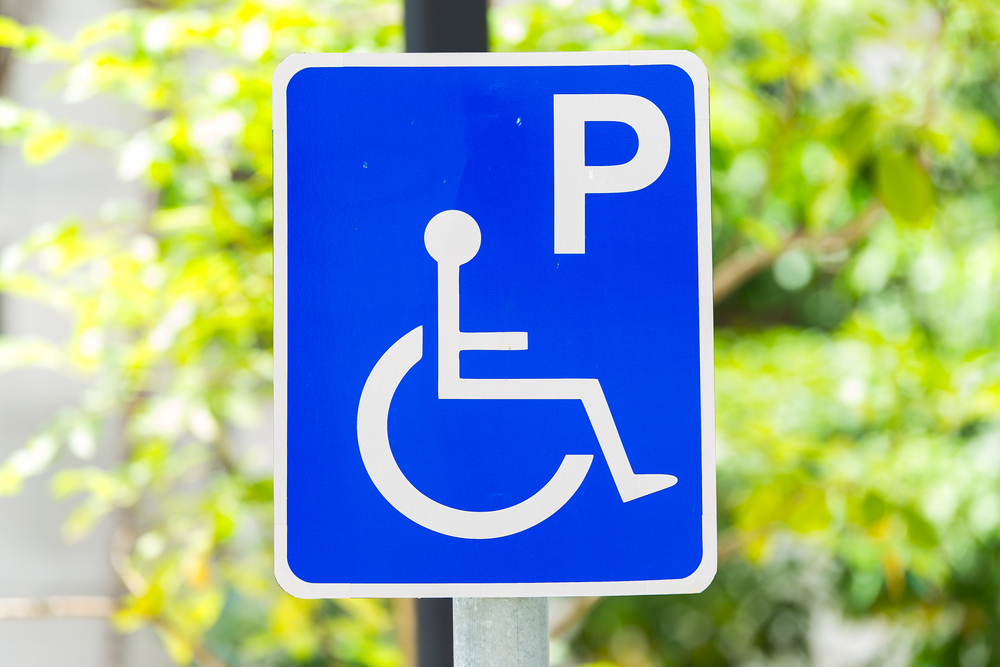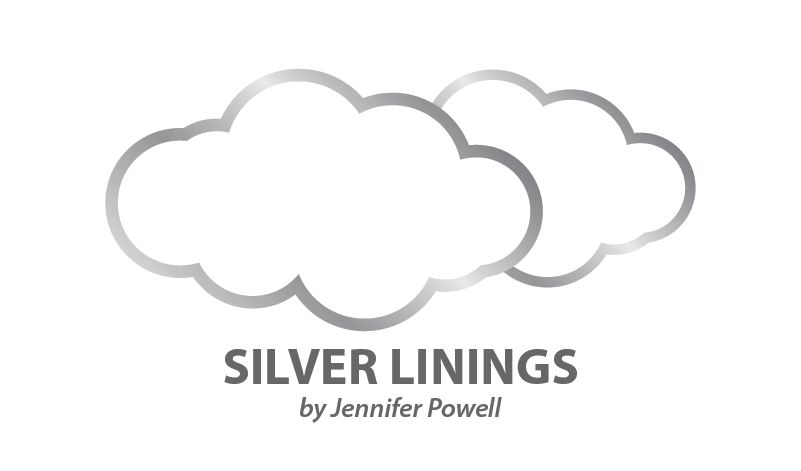Invisible No More
Written by |


My parents taught me at an early age not to judge others based on appearance. My mother would gently admonish me if I would stare or point at someone in a wheelchair or who had an obvious physical malady.
While these basic manners are important, have you ever considered the antithesis? Assumptions are easily made when someone has an overt physical disability, but what about when they do not look sick?
I have never been one to draw attention to my special needs due to multiple sclerosis, but the necessity of using handicapped parking spaces and asking for help carrying groceries to my car has progressed along with my disease. This has been a difficult transcendence, as I feel extremely vulnerable both asking for assistance and using tools earmarked for those with disabilities. While most of this is self-imposed, I recently had an interaction that served to verify that the other part is not self-imposed.
After checking out of a well-known warehouse store, I proceeded to the exit, and then inquired for help in loading my car. After waiting five minutes, I decided to try on my own and made my way to the car in the handicapped parking. Feeling particularly fatigued and wearing a boot from a recent surgery, I was grateful to spot one of the helpers in the row adjacent to mine.
After flagging him down for help, I greeted him warmly as he approached my car. My warmth suddenly cooled when, upon attempting to lift the first of many boxes, he pointedly asked me why I needed help. Taken aback and thinking I had surely misheard, I asked him to repeat what he’d said. He again asked (with an added measure of hostility) why I needed help. Was it too heavy? Was it too awkward?
Now certain of his accusatory tone, I regret to tell you that I cried. The heat, fatigue, and long lines paled in comparison to his challenging why I asked for a helping hand. Now openly crying and incredulous at this entire exchange, I pointed to the handicapped parking space and the boot on my leg and hastily enlightened him that I have progressive multiple sclerosis. Almost immediately, I felt anger at my need to substantiate; yet, I knew that I had to continue in an effort to educate both him and his manager so that no one else would experience this level of humiliation.
With hot tears streaming down my face, I re-entered the store. Upon meeting the manager, I prefaced that I did not want anyone to lose their job, as despite my sadness and anger, I knew I stood at a crossroads. This was not about antipathy, but rather empathy and education. I like to think that when we know better we do better. I calmly described what happened and the degradation I felt at having to justify unnecessarily something so personal.
Living with an often-invisible disease is a duality. Cynical looks from strangers when you use a handicapped spot are demeaning, yet I am grateful that my outward appearance does not reflect what lies within. As a direct result, not only do we spend precious energy managing physical and emotional pain, we also defend skepticism and judgment for our lack of outward disability.
I walked back to my car deep in thought. So much of the manifestation of multiple sclerosis lies below whatever façade we try so hard to maintain. What would I look like if my outward appearance reflected how I felt?
I began to tear up as I pictured a weary shell of a woman covered in bandages, surgical scars, and bruises. I saw vulnerability amid the pain that covered most of her body, and deep knowledge of things she wished she’d never learned. I saw strength alongside inadequacy, sadness alongside joy, and hope alongside despair.
I saw me.
***
Note: Multiple Sclerosis News Today is strictly a news and information website about the disease. It does not provide medical advice, diagnosis, or treatment. This content is not intended to be a substitute for professional medical advice, diagnosis, or treatment. Always seek the advice of your physician or other qualified health provider with any questions you may have regarding a medical condition. Never disregard professional medical advice or delay in seeking it because of something you have read on this website. The opinions expressed in this column are not those of Multiple Sclerosis News Today or its parent company, Bionews Services, and are intended to spark discussion about issues pertaining to multiple sclerosis.



Jamie Tripp Utitus
Jennifer, the first blog post I had ever written about my MS, and really what turned me into a writer, was about this inner dialogue and struggle to finally admit I needed to get a handicapped placard. I finally had to, I couldn't put it off and get through the day on my own with kids, but that led me to getting itchy when someone would watch me use it. I suppose I looked like this healthy young 34 year-old with two kids? But then it did turn real, people looked and judged. So many looks and so many underhanded comments since. But I realized, I do it too, just in different ways. The greatest thing I have learned is that I too had preconceived notions of what "sick" looked like...and it wasn't me, but it also wasn't people smoking who "looked" like they didn't take care of themselves. I was juicing and living off kale, trying to save myself lol. I'd judge if someone looked like they weren't doing that. Now, I just try to smile and give everyone the benefit of the doubt while sending them love...even if they're giving me the stank eye. It doesn't touch me anymore...
Paul Glendinning
Good for You, Jamie! I love it.
Ex Smoker and unhealthy eater
Phil
People don't understand suffering until they suffer themselves.
Paul Glendinning
Dear Jen,
My wife, Tammy just found your article and we read it aloud together. Then, we shared tears together. You told her story here, right from the parking lot of Sam's Club (COSTCO employees would NEVER have done this, right?:). We have been together for 18 yrs now and share everything but the actual symptoms of her RRMS. This story has happened to her 3 times; twice from police officers and once from a thoughtless citizen, ignorant of the disease and apparently, the ADA.
I am writing because I want to tell you, 2 years later, that your writing is excellent and still reaching people like us. Very inspiring, excellent ending and so cathartic to couples like us and especially to MS sufferers like Tammy. It has clearly comforted her to know that she was not the only one. The depth of your use of the word "antipathy" when approaching management really got me. So much of the harm and abuse will never find justice. It is sometimes the highest objective to just make it stop.
Thanks again Jen,
Paul & Tammy Glendinning
Jennifer (Jenn) Powell
Dear Paul and Tammy,
Thank you so much for reading along on my journey as well as giving me insight into your own.
I am sorry Tammy has experienced this, especially by those we would hope to understand. There are few things more frustrating. The only justice we can be certain of is our own. I try to educate as I go to pass along wisdom only we know. I hope that in this small way, the next individual will be spared my misfortune.
The obvious devotion you share is palpable and perhaps the greatest justice. Thank you for sharing such a gift with me, I am better for having you as readers.
Kindly,
Jenn